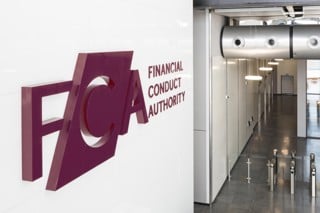Shaun Harris, sales director at Codeweavers, said: “Dealer social media activity is often dominated by stock lists on Twitter and Facebook, missing the engaging content core requirement.”
Paul Brotherton, head of business strategy, improvement and support at Black Horse, said: “Pro-active use of social media and follow-up varies from dealer to dealer in areas including special promotions, campaigns and size of customer and stakeholder following.”
Many dealers still cautious about social media
Finance brokers committed to the use of social media believe many dealers remain cautious about making the investment.
John Hughes, director at broker Mann Island Finance, said: “It is hard for dealers to commit resources to what will commonly be a non-core activity for lenders. Bloomberg research shows a number of major brands have closed Facebook online storefronts as the returns fail to justify the high development costs.”
Hughes said the opportunity from social media had to be appropriate. “Like dealers we need to establish a robust return on investment,” he said. “A relatively small number of dealers are very active on social media, but it seems for many others the jury is very much out. Motor dealers want a quick return on investment and the metrics to support the value of a significant level of social media activity are not, as yet, compelling.”
Samantha Chilcott, digital marketing executive at broker Creditplus, said: “If customers contact a company with a complaint via social media, and it is not addressed, the issue stays there for lots of other potential customers to see.
“A company regularly interacting with customers can see very positive results. When potential customers see those communications it helps to validate the company.”
'The evidence for uusing Facebook is questionable'
Some finance companies have challenged the belief that active social media is essential in a dealer’s marketing mix.
Karl Werner, MotoNovo Finance head of sales and marketing, said: “Social media has taken an increasing share of marketing spend over recent years.
“Challenging this may be swimming against the current, but, like most business people, we recognise the vital importance of achieving an acceptable return on our marketing budget. The evidence for using Facebook is questionable.”
Werner believes dealers can miss opportunities by spending more time and resources on social media.
“To date the cost/value evidence with social media, notably Facebook, in generating activity and revenue for dealers is limited,” he said.
“Conversely, investing in a well-populated, information-rich website with tools offers a better return on investment. Dealers should be working to ensure such opportunities are not missed”.
James Tew, director at iVendi, said information from sites such as Facebook allows dealers to build a personality picture of someone applying for finance through their website.
“It’s possible to collate interests such as music, cinema, travelling and football from internet data,” he said.
“This is useful when sales people are meeting fewer customers face to face and less frequently. More customers now choose a car and finance it online and the first and only contact with a dealer is when they collect their purchase.”
Tom Skilling, digital development manager at DSG FS, said: “Without content, dealers’ Twitter and Facebook pages won’t entice people to keep coming back to see what they’ve got to say.
“Social media should encourage potential customers to click through to see a dealer’s website – an online showroom where cars, offers and promotions can be found.”



















Mike Hind - 17/06/2014 15:37
It is a big mistake to focus entirely on the supposed revenue/business opportunities offered by social media for motor retailers and allied businesses. Some are very good at engaging in a friendly way that may generate enquiries or even sales, or simply goodwill and a reputation for being 'nice'. Some will make it pay and many won't, but endlessly debating the cash value or otherwise of being active on social media completely misses the point. And - obviously - we all want to drive eyeballs to our websites, so that's a given, But a massive reason for being active on social media - especially Twitter - is to ensure you can deploy reputational shield. Try this: Google a well known brand and the word 'complaint' or 'problem'. The brands/businesses where a negative story appears high in those results are invariably those who do not use social media effectively and are therefore incapable of deploying reputational shield. Now try this: next time you have a problem with a product or service go straight onto Twitter and see how quickly the business behind it takes you offline and into direct communication. That is good housekeeping. And that is the point of social media. If you can develop fabulous viral content that is shared widely, well done you. If you can keep the complaints off the first page of Google, even more well done you.